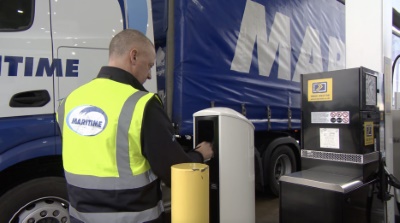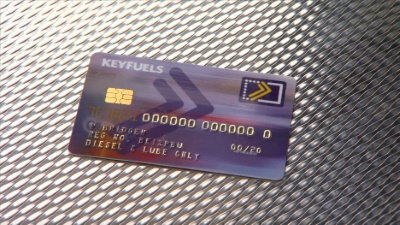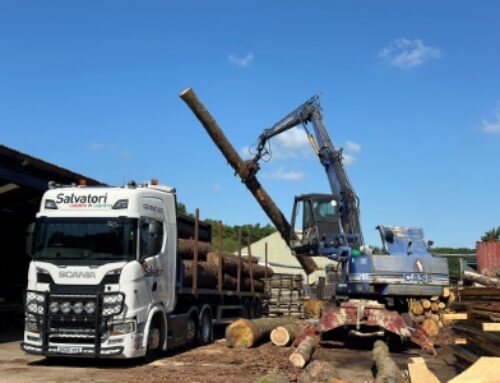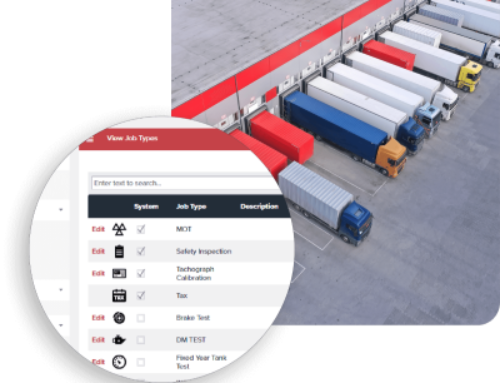Corpay: fuel cards bring data and flexibility benefits
Payment systems provider Corpay has explained how fleets can gain operational advantages and improved oversight through the adoption of fuel cards.
According to Paul Holland, managing director for UK/ANZ Fleet at Corpay – whose brands include The Fuelcard Company, Allstar and Keyfuels – fuel is still doing much of the heavy lifting in keeping costs high for operators.
“Petrol averaged £1.34 per litre and diesel £1.42 in August, according to Allstar supplied data,” said Paul.
“Those numbers may not look dramatic, but when multiplied across hundreds of vehicles, even a small rise adds tens of thousands of pounds to a fleet’s annual spend.
“The real problem is not just the cost, but the volatility. Prices move month to month, and every swing works its way down the supply chain, hitting operators, retailers, manufacturers and eventually consumers. For fleet managers already juggling razor-thin margins, this instability makes planning almost impossible.”
He continued: “At the recent RHA Future Forum one theme was repeated across the panels: there is no single road to net zero. We are heading towards decarbonisation, but it will not be a straight path. Diesel and petrol will remain critical for years, sitting alongside an expanding mix of electric, HVO, hydrogen and hybrids.
“This overlap is what I’ve seen coined as the messy middle. Operators cannot flick a switch and move wholesale to new technology. They must run mixed fleets, manage Scope 3 commitments from customers, and navigate shifting regulation from government.
“Vehicles are more expensive, financing is tight, and total cost of ownership is hard to pin down. One depot may have charging infrastructure, another may not and installing it everywhere can be prohibitive. With emissions trading schemes such as EU ETS2 approaching, fuel economics are shifting under our feet.”
In times of uncertainty the instinct is to pause, but fleets cannot afford to wait for perfect clarity, Paul contends.
 “Customers and regulators are already demanding progress, while margins depend on taking smart decisions today. The challenge is how to run profitably now while preparing for an unpredictable future.”
“Customers and regulators are already demanding progress, while margins depend on taking smart decisions today. The challenge is how to run profitably now while preparing for an unpredictable future.”
He identifies four key priorities for operators, one being flexibility: solutions must work across fuels and not lock fleets into one pathway. Transparency is another consideration, says Paul: managers need a clear line of sight on real costs, not just headline averages.
The third priority is intelligence: “Transaction and usage data must guide decisions on efficiency, incentives and replacement cycles,” he said.
And finally, collaboration: “Payment providers sit at the intersection of drivers, fleet managers and merchants. That position can accelerate the adoption of greener fuels when the business case is clear.”
This is where fuel cards and payment technology come into their own, says Paul.
“Too often they are dismissed as back-office admin, a convenient way to settle bills. In reality they are one of the most practical tools fleets have for controlling spend in the messy middle.
“Every time a driver fills up or charges, the transaction is recorded. At scale, those transactions build a detailed picture of how fleets operate. Which fuels are being used. What is really being paid. Where inefficiencies sit. That visibility is priceless when costs are volatile and the energy mix is shifting.
“Fuel cards also give fleets flexibility. The ability to pay seamlessly across petrol, diesel, HVO and electric charging reduces the operational risk of running mixed fleets. Instead of waiting for one clear technological winner, operators can act now, confident that they can track and control expenditure across multiple energy sources.”
This makes fuel cards more than a payment instrument, he adds; they become a strategic enabler.
 “The combination of detailed data, flexible acceptance and clear reporting gives operators the tools to make evidence-based decisions. It allows them to move faster when the numbers make sense, defend margins when inflation spikes, and provide credible decarbonisation plans backed by hard evidence.”
“The combination of detailed data, flexible acceptance and clear reporting gives operators the tools to make evidence-based decisions. It allows them to move faster when the numbers make sense, defend margins when inflation spikes, and provide credible decarbonisation plans backed by hard evidence.”
The messy middle will last longer than many would like, suggests Paul, with operators managing overlapping fuels and investment considerations for years.
“But that is no reason to despair. It is a reason to be pragmatic.
“Fuel cards are not glamorous, but they deliver something that is essential – control. Control over cost, visibility over spend, and the confidence to make quick, informed choices.
“As I argued at the RHA Future Forum, the future will not belong to one fuel. It will belong to many. Our job as an industry is to operate confidently in this messy middle, using the tools we already have to steer through uncertainty. And right now, fuel cards are one of the most valuable tools at our disposal.”













